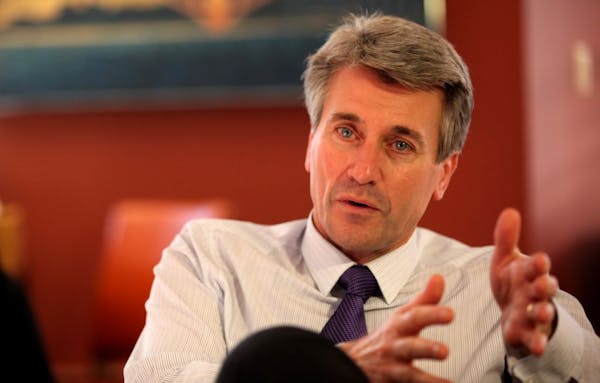Counterpoint
A March 22 Star Tribune editorial pushes us and our City Council colleagues to support the current stadium bill "before it's too late" ("City pledge needed to kick-start stadium").
The editorial misses a crucial point: It was "too late" from the start.
From the beginning, there was not the necessary support in the House or the Senate. From the beginning, state leaders made decisions that prevented them from gaining any more votes from legislators. The stadium bill was dead on arrival.
Stadium proponents realized that raising and spending more than $600 million for a stadium was not popular with voters. So they pretended that they could spend more than $600 million without having to raise it. Instead of honestly raising new revenue, they would simply spend money from existing sources.
Specifically, the proposed state share would tap money from charitable gambling, and the city would take funds that currently pay for the Minneapolis Convention Center.
But charities that pay for their efforts from charitable gaming saw the proposed electronic pulltabs as competing for the same revenue they depend on. So the proponents lost votes from senators and representatives who care about charitable gambling.
Second, state leaders put Convention Center dollars on the table without a clear plan regarding long-term funding for that facility. Republicans proceeded to try to extort council votes by threatening to eliminate that funding regardless of the outcome of the stadium debate. This further eroded trust in the state for a proposal that requires trust.
Third, the sales tax proposal was local, placing the burden solely on Minneapolis. The Vikings are a statewide team, and their facility is a statewide asset. Spreading the sales tax across the state would have allowed all fans to share in the project without placing a larger burden and financial risk on one community over all others. That decision lost votes from legislators who care about tax fairness.
Fourth, the financial plan itself suffers from a number of gaping holes, most notably an overestimate of pulltab revenues. That decision lost votes from Democratic legislators who care about the structural imbalance in the state budget.
Fifth, the plan does not address its impacts on other publicly subsidized regional facilities. If we've learned anything from 40 years of wrangling about these facilities, it's that investment in one can create negative domino effects for others already in existence. When state leaders ignored that regional impact, they lost votes from legislators who represent other publicly funded facilities.
Sixth, like it or not, the voters of Minneapolis were overwhelmingly clear in their desire to have a referendum on any sports facility expenditure over $10 million. No matter how state leaders downplay that or spin it with legalese, this proposal requires an end run around the voters of Minneapolis. Predictably, that decision lost votes among legislators who care about local decisionmaking and the voice of the electorate.
Seventh, and worst, state leaders accepted the premise that the public was obligated to come up with more than $600 million, by far the largest subsidy in state history. They never demanded more from those who will benefit most from this public subsidy: the private sector, including the Wilfs and the NFL. That decision lost votes from legislators who care about the missed opportunity from spending more than $600 million on a private business rather than investing in neglected public goods like schools or roads.
We have not been and will not be supporters of this stadium plan. That is beside the point. State Republicans created a myth of the need for City Council support to hide the fact that their own Republican delegation is fractured, that they don't have the votes and that they desperately want to withhold from Gov. Mark Dayton something he so clearly wants. The Star Tribune editorial colluded with this myth.
As a result, the Editorial Board missed an opportunity to name the real politics of the situation and answer the question: "What is behind this relentless push to scapegoat the Minneapolis City Council for something that is rightfully in the hands of the Minnesota Legislature?"
--------------
Betsy Hodges and Elizabeth Glidden are members of the Minneapolis City Council.
How 'the Squad' and like-minded progressives have changed their party
Protect kids online


